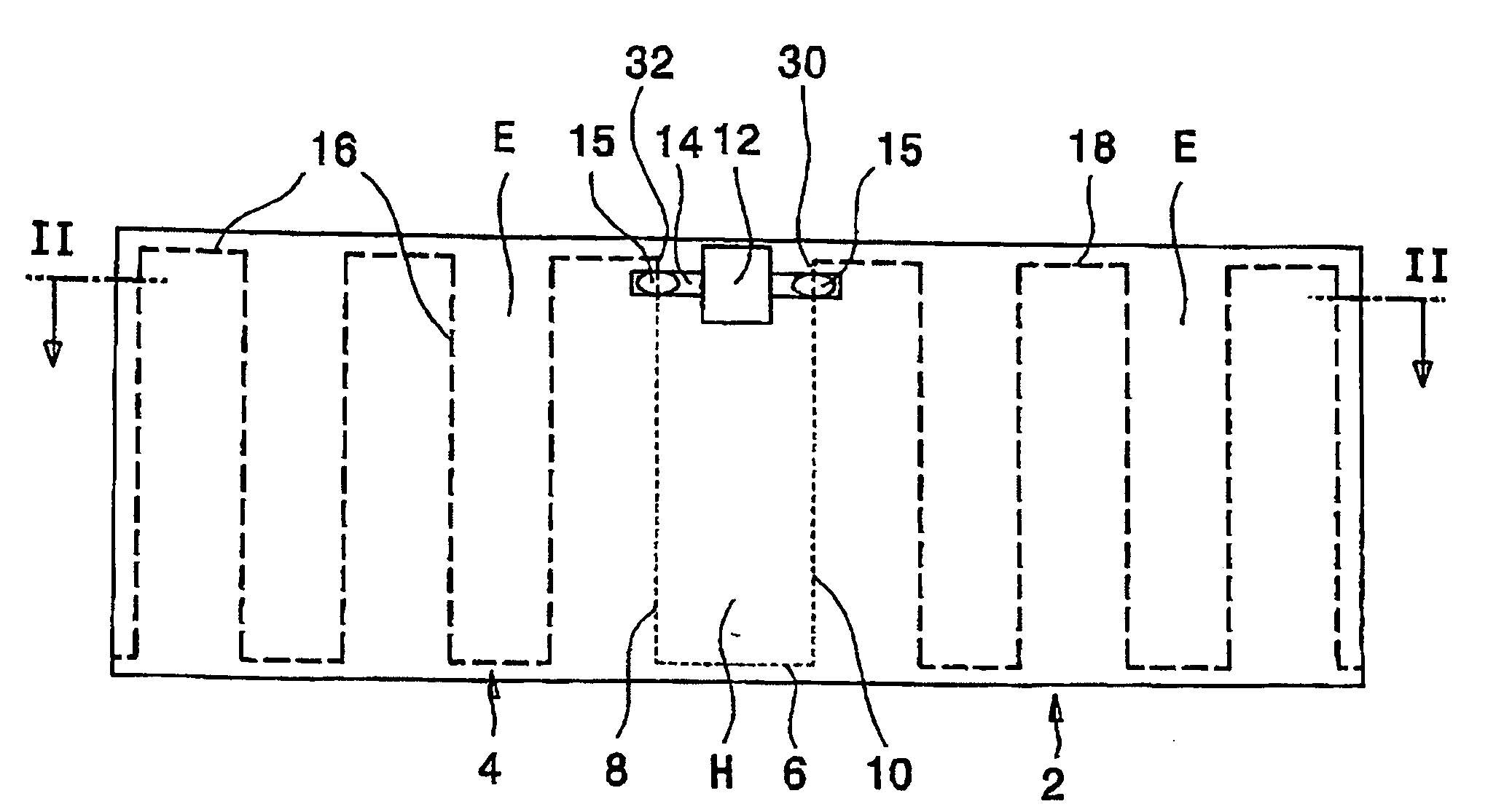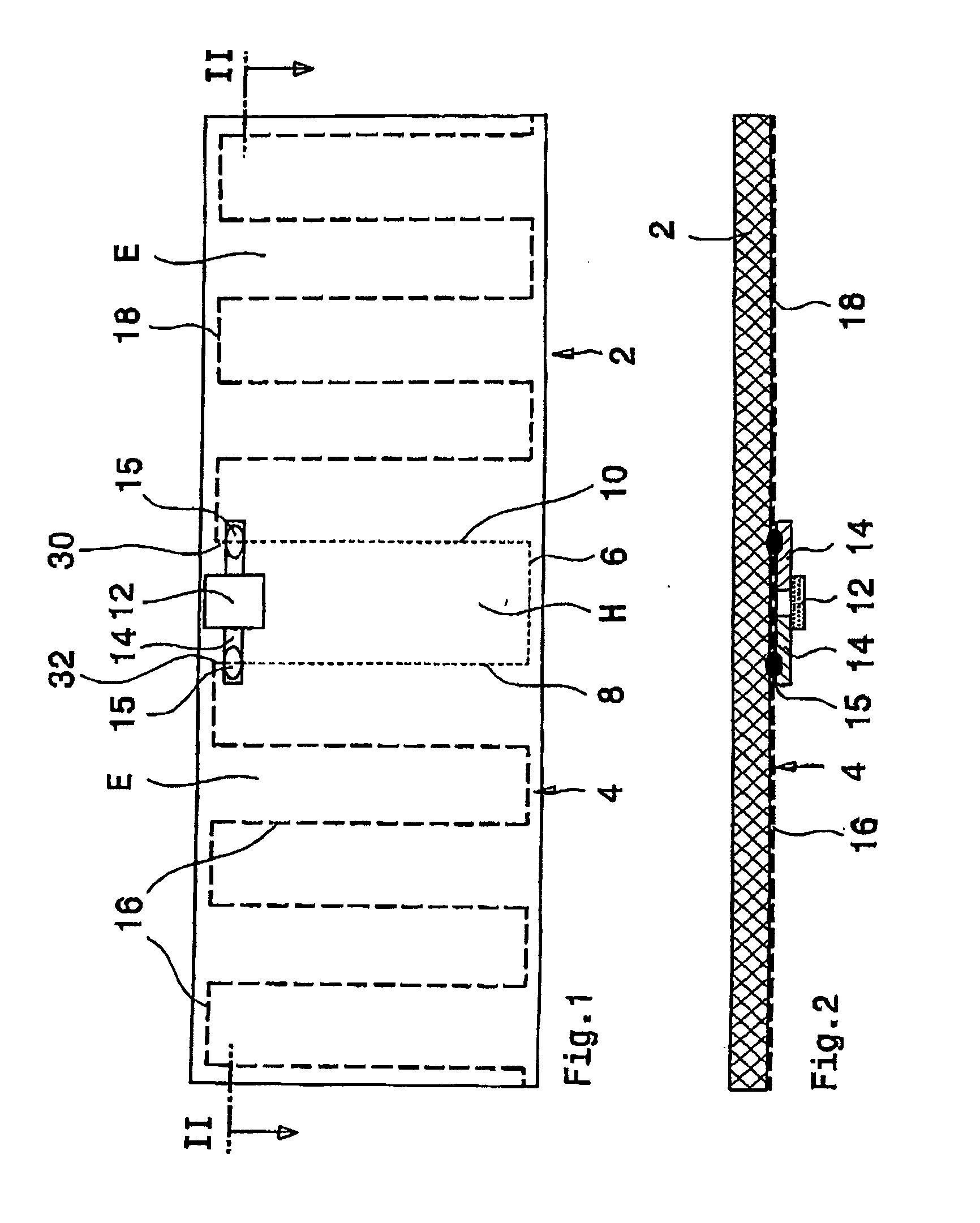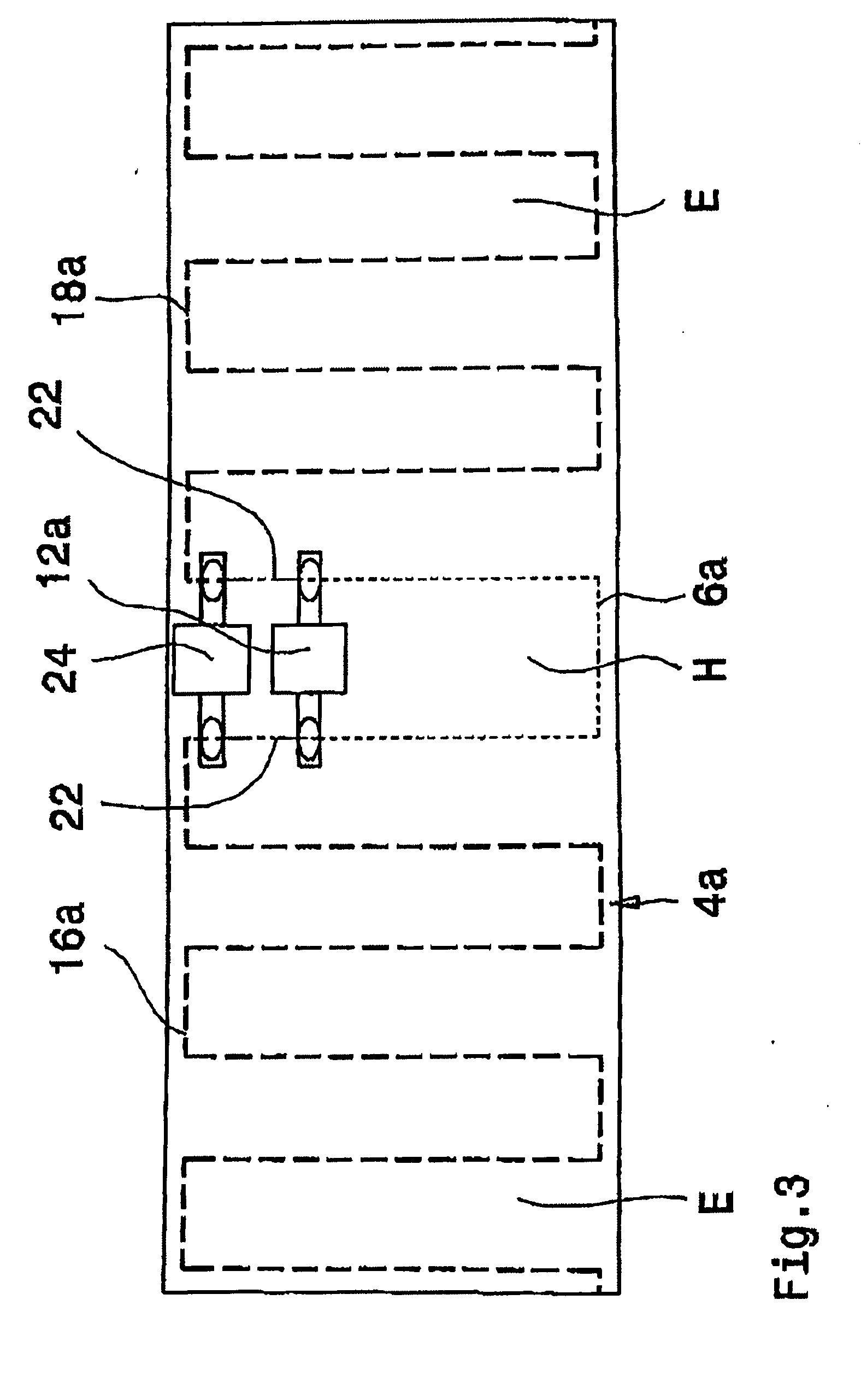RFID textile label
a textile label and RFID technology, applied in the field of RFID textile labels, can solve the problems of inconvenient use of RFID labels, inability to meet the needs of short range transponders, and the way of use is rather less suitable for textile labels
- Summary
- Abstract
- Description
- Claims
- Application Information
AI Technical Summary
Benefits of technology
Problems solved by technology
Method used
Image
Examples
Embodiment Construction
[0021]FIGS. 1 and 2 show a first exemplary embodiment of an RFID textile label having a textile carrier 2 made of a woven fabric into which an open antenna 4 is woven in meandering fashion. A loop 6 of the antenna, to the sides 8, 10 of which an RFID chip 12 is fastened by means of connection bases 14, is singled out in the central region, that is to say at half the length of the antenna. The connection bases 14 are connected 15 to the antenna 4 by means of welding, soldering or by means of an electrically conductive adhesive, for example. The antenna loop 6 forms an H-field antenna for close range and the antenna sections 16, 18 which are outside the antenna loop 6 are used as an E-field antenna for long range.
[0022]FIG. 3 shows a further RFID textile label which is constructed, in principle, like that in FIGS. 1 and 2 but the antenna loop 6a of the antenna 4a is separated from the antenna sections 16a, 18a by means of interruptions 20, 22. The RFID chip 24 is connected to the ante...
PUM
 Login to View More
Login to View More Abstract
Description
Claims
Application Information
 Login to View More
Login to View More - R&D
- Intellectual Property
- Life Sciences
- Materials
- Tech Scout
- Unparalleled Data Quality
- Higher Quality Content
- 60% Fewer Hallucinations
Browse by: Latest US Patents, China's latest patents, Technical Efficacy Thesaurus, Application Domain, Technology Topic, Popular Technical Reports.
© 2025 PatSnap. All rights reserved.Legal|Privacy policy|Modern Slavery Act Transparency Statement|Sitemap|About US| Contact US: help@patsnap.com



